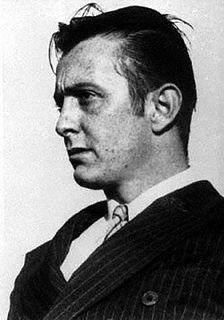A Quote by Donna Tartt
The firelight magnified our shadows, glinted off the silver, flickered high upon the walls; its reflection roared orange in the windowpanes as if a city were burning outside. The whoosh of the flames was like a flock of birds, trapped and beating in a whirlwind near the ceiling. And I wouldn't have been at all surprised if the long mahogany banquet table, draped in linen, laden with china and candles and fruit and flowers, had simply vanished into thin air, like a magic casket in a fairy story.
Related Quotes
Countless candles dribbled with hot wax, and their flames, like little flags, fluttered in the unchartered currents of air. Thousands of lamps, naked, or shuttered behind coloured glass, burned with their glows of purple, amber, grass-green, blue, blood red and even grey. The walls of Gormenghast were like the walls of paradise or like the walls of an inferno. The colours were devilish or angelical according to the colour of the mind that watched them. They swam, those walls, with the hues of hell, with the tints of Zion. The breasts of the plumaged seraphim; the scales of Satan.
Why is it we want so badly to memorialize ourselves? Even while we're still alive. We wish to assert our existence, like dogs peeing on fire hydrants. We put on display our framed photographs, our parchment diplomas, our silver-plated cups; we monogram our linen, we carve our names on trees, we scrawl them on washroom walls. It's all the same impulse. What do we hope from it? Applause, envy, respect? Or simply attention, of any kind we can get? At the very least we want a witness. We can't stand the idea of our own voices falling silent finally, like a radio running down.
Near our vineyard there was a pear tree laden with fruit that was not attractive in either flavor or form. One night, when I [at the age of sixteen] had played until dark on the sandlot with some other juvenile delinquents, we went to shake that tree and carry off its fruit. From it we carried off huge loads, not to feast on, but to throw to the pigs, although we did eat a few ourselves. We did it just because it was forbidden.
I often think that at the center of me is a voice that at last did split, a house in my heart so invaded with other people and their speech, friends I believed I was devoted to, people whose lives I can simply guess at now, that it gives me the impression I am simply a collection of them, that they all existed for themselves, but had inadvertently formed me, then vanished. But, what: Should I have been expected to create my own self, out of nothing, out of thin, thin air and alone?
She went out in the city with its lights like a radioactive phosphorescence, wandered through galleries where the high-priced art on the walls was the same as the graffiti scrawled outside by taggers who were arrested or killed for it, went to parties in hotel rooms where white-skinned, lingerie-clad rock stars had been staying the night their husbands shot themselves in the head, listened to music in nightclubs where stunning boyish actors had OD'd on the pavement.
I look up at the ceiling, tracing the foliage of the wreath. Today it makes me think of a hat, the large-brimmed hats women used to wear at some period during the old days: hats like enormous halos, festooned with fruit and flowers, and the feathers of exotic birds; hats like an idea of paradise, floating just above the head, a thought solidified.
Catelyn had never liked this godswood. She had been born a Tully, at Riverrun far to the south, on the Red Fork of the Trident. The godswood there was a garden, bright and airy, where tall redwoods spread dappled shadows across tinkling streams, birds sang from hidden nests, and the air was spicy with the scent of flowers.
It was a bad one, the Winter of 1933. Wading home that night through flames of snow, my toes burning, my ears on fire, the snow swirling around me like a flock of angry nuns, I stopped dead in my tracks. The time had come to take stock. Fair weather or foul, certain forces in the world were at work trying to destroy me.
He was tall, thin, and very old, judging by the silver of his hair and beard, which were both long enough to tuck into his belt. He was wearing long robes, a purple cloak that swept the ground, and high-heeled, buckled boots. His blue eyes were light, bright, and sparkling behind half-moon spectacles and his nose was very long and crooked, as though it had been broken at least twice. This man's name was Albus Dumbledore.
You see, women are like fires, like flames. Some women are like candles, bright and friendly. Some are like single sparks, or embers, like fireflies for chasing on summer nights. Some are like campfires, all light and heat for a night and willing to be left after. Some women are like hearthfires, not much to look at but underneath they are all warm red coal that burns a long, long while.
The paintings that laughed at him merrily from the walls were like nothing he had ever seen or dreamed of. Gone were the flat, thin surfaces. Gone was the sentimental sobriety. Gone was the brown gravy in which Europe had been bathing its pictures for centuries. Here were pictures riotously mad with the sun. With light and air and throbbing vivacity. Paintings of ballet girls backstage, done in primitive reds, greens, and blues thrown next to each other irreverantly. He looked at the signature. Degas.




































